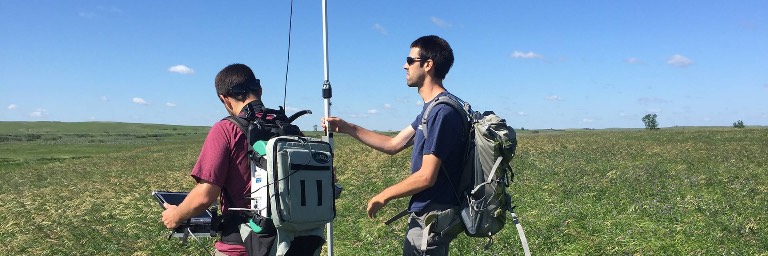Earth System Science & Policy Ph.D.
Help drive new Earth system science and policy research to advance knowledge and develop original solutions to global sustainability challenges.
Learn to generate rigorous scientific inquiry that bridges the gaps identified in scientific knowledge. UND's Earth System Science & Policy Ph.D. combines theory with practice, global and local perspectives, and scientific and social disciplines.
- Program type:
- Doctoral Degree
- Format:
- On Campus or Online
- Est. time to complete:
- 4-5 years
- Credit hours:
- 90
Why earn an earth system science and policy Ph.D.?
UND's Earth System Science & Policy Ph.D.
-
Gain the skills to generate creative new solutions to Earth system and sustainability problems, and to seize opportunities presented by a changing environment.
-
Prepare for a range of careers in industry, government agencies and higher education.
-
Generate rigorous and original scientific inquiry that bridges gaps in scientific knowledge.
-
Synthesize and communicate research results with a dissertation, peer reviewed publications and professional presentations.
-
Enhance your professional skills at 60+ free workshops offered through the UND School of Graduate Studies. Our goal is to provide you with the workforce skills and job search strategies to succeed.
-
Study at a Carnegie R1 Institution ranked #144 by the NSF. In 2025, just 187 American universities held the R1 status.
What can I do with an earth system science Ph.D.?
Earth System Science & Policy Ph.D. Courses
Online Ph.D. in Earth System Science & Policy
Earth System Science & Policy
The earth is comprised of complex and interconnected systems. Learn about programs and research opportunities at UND including a recent research expedition to Peru.
